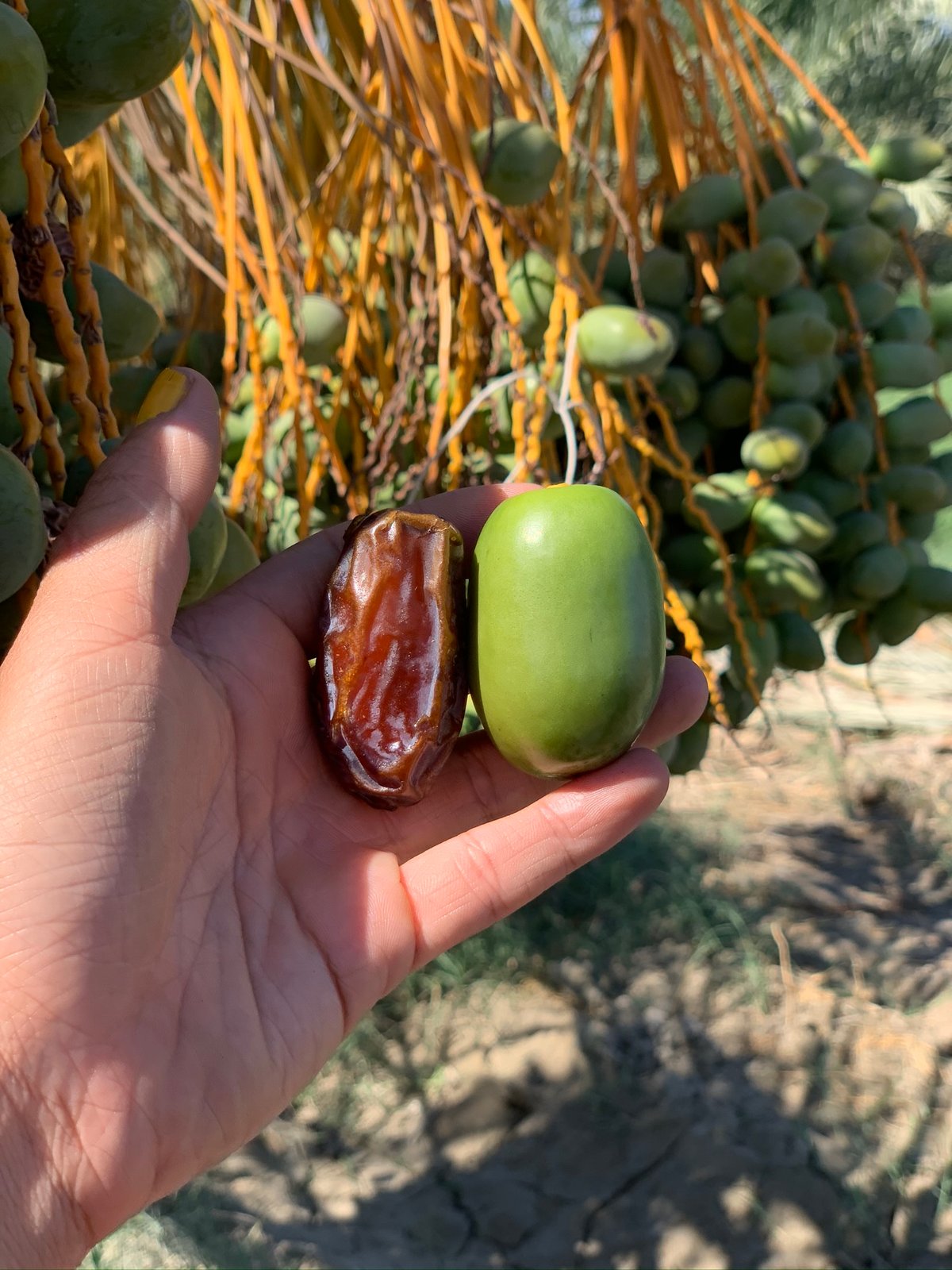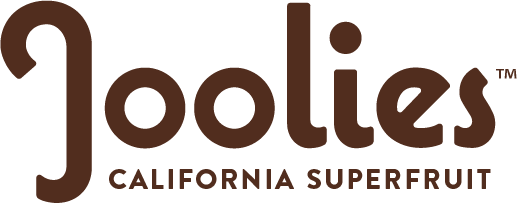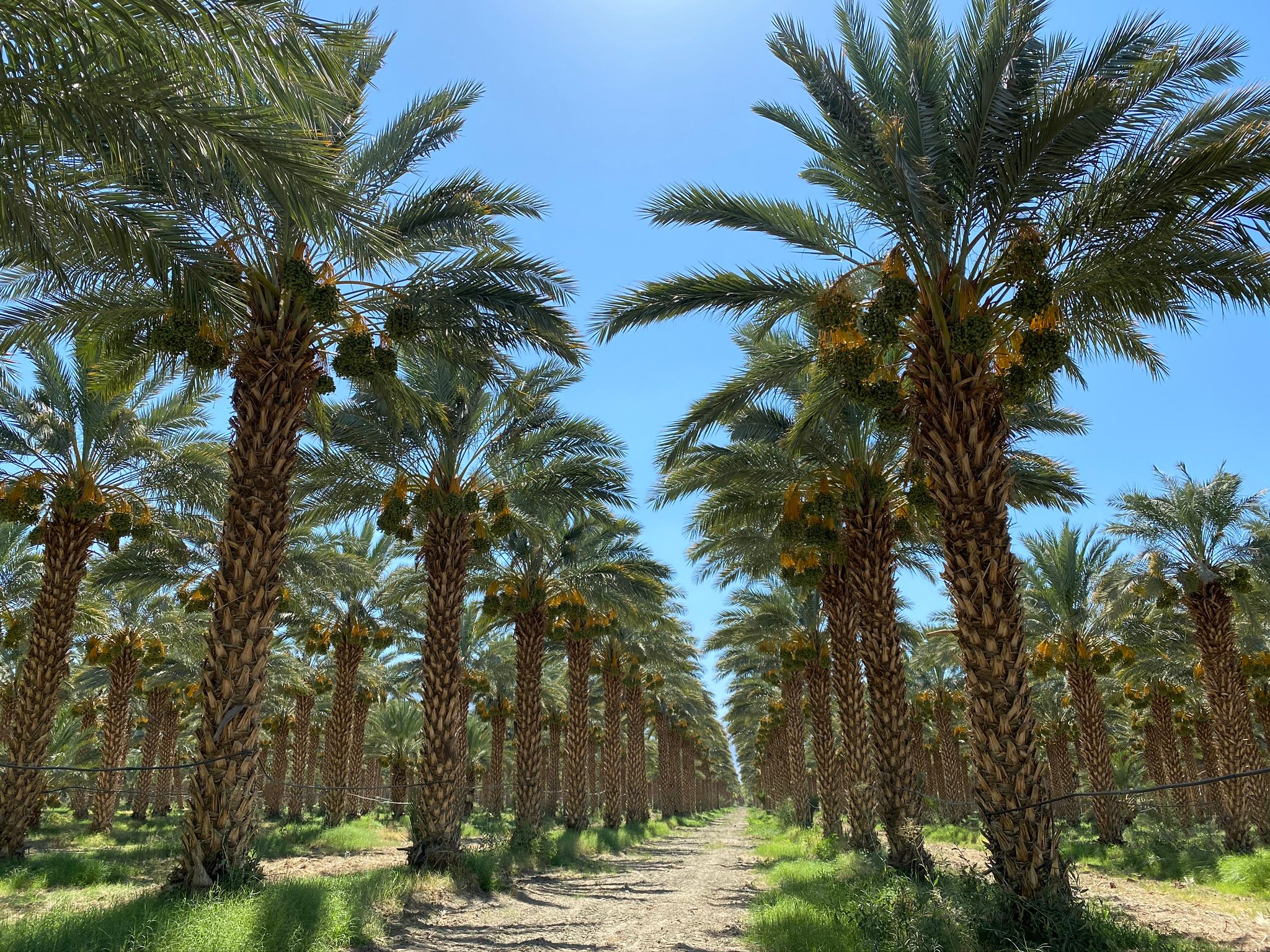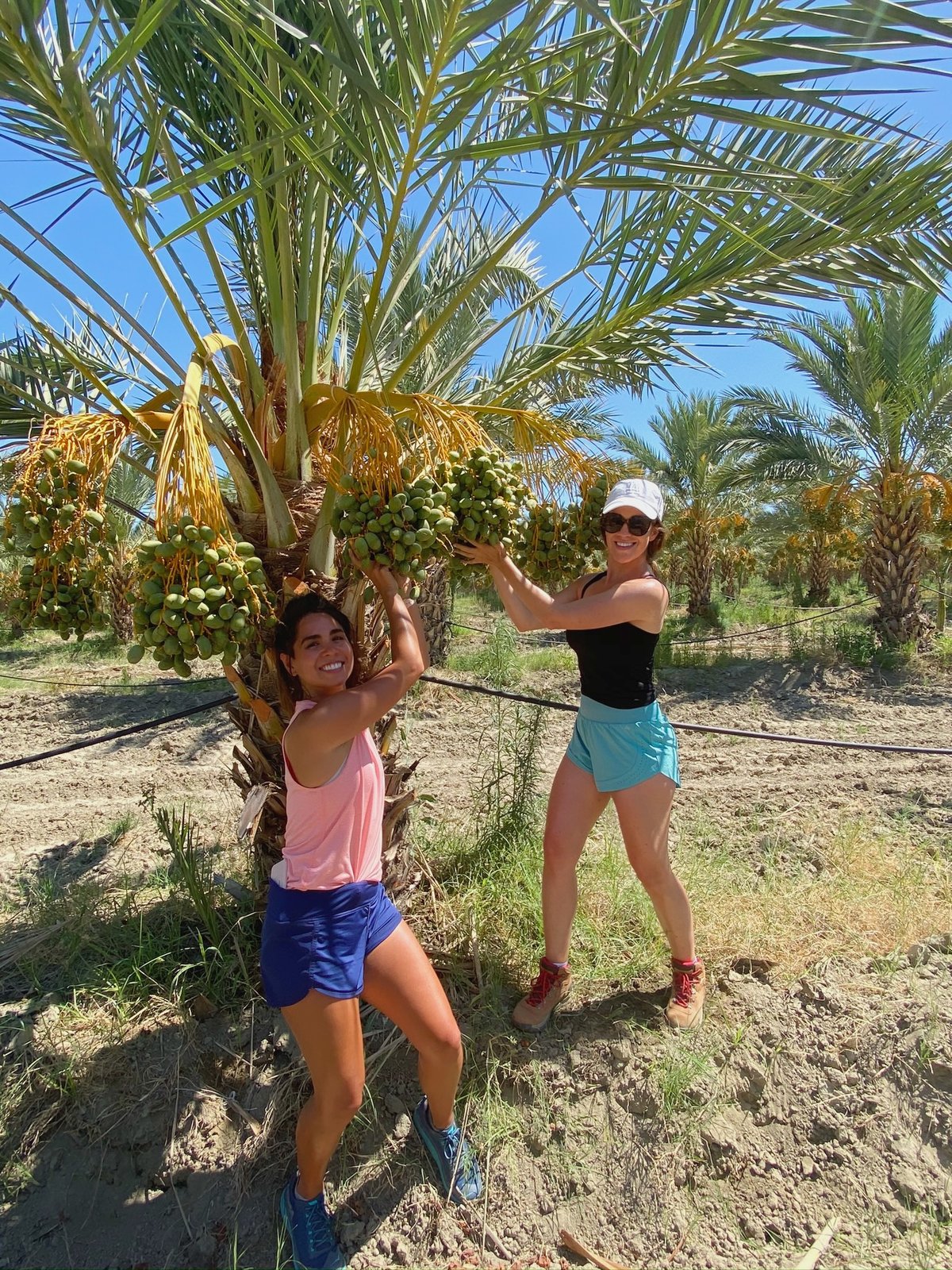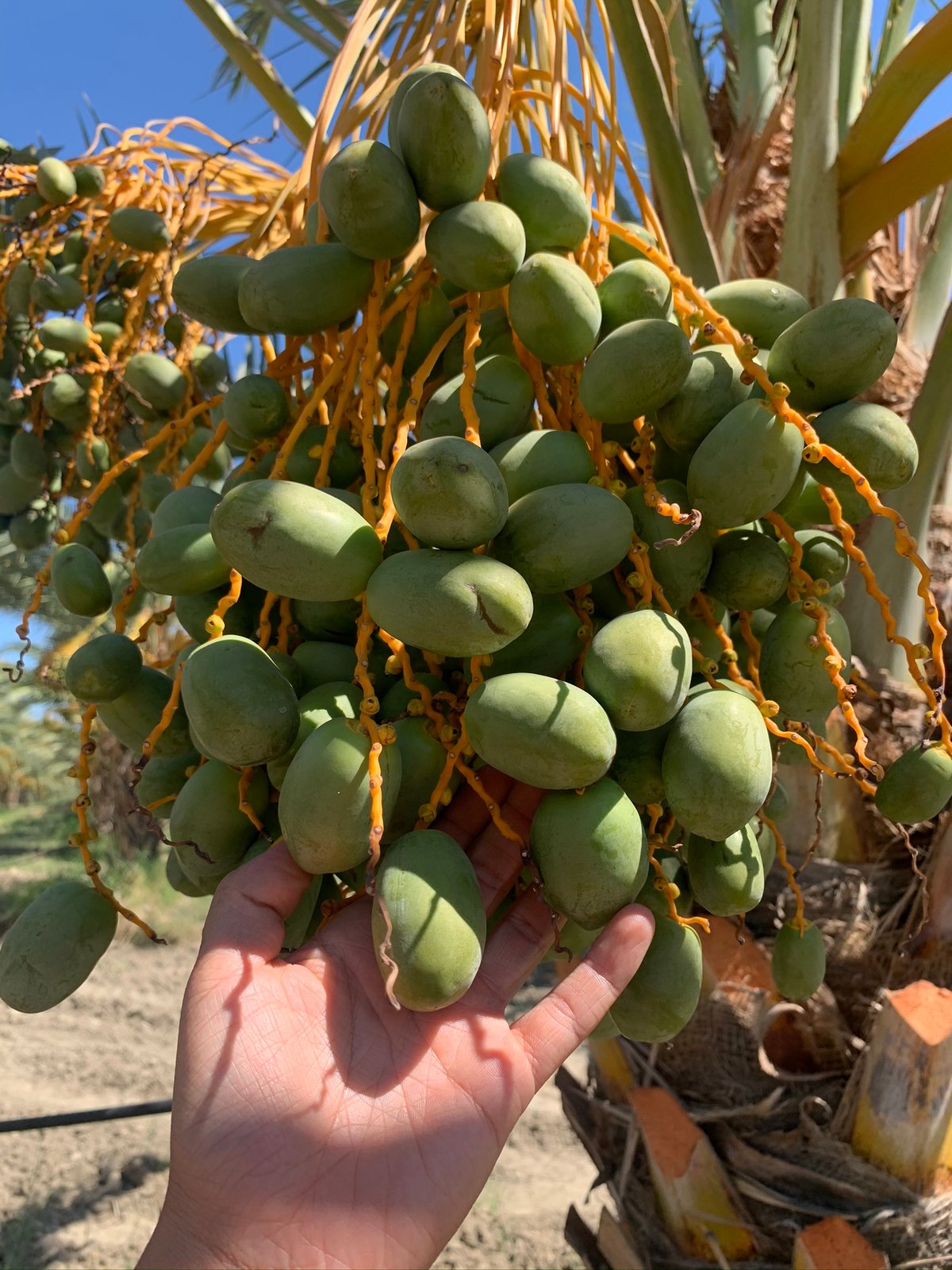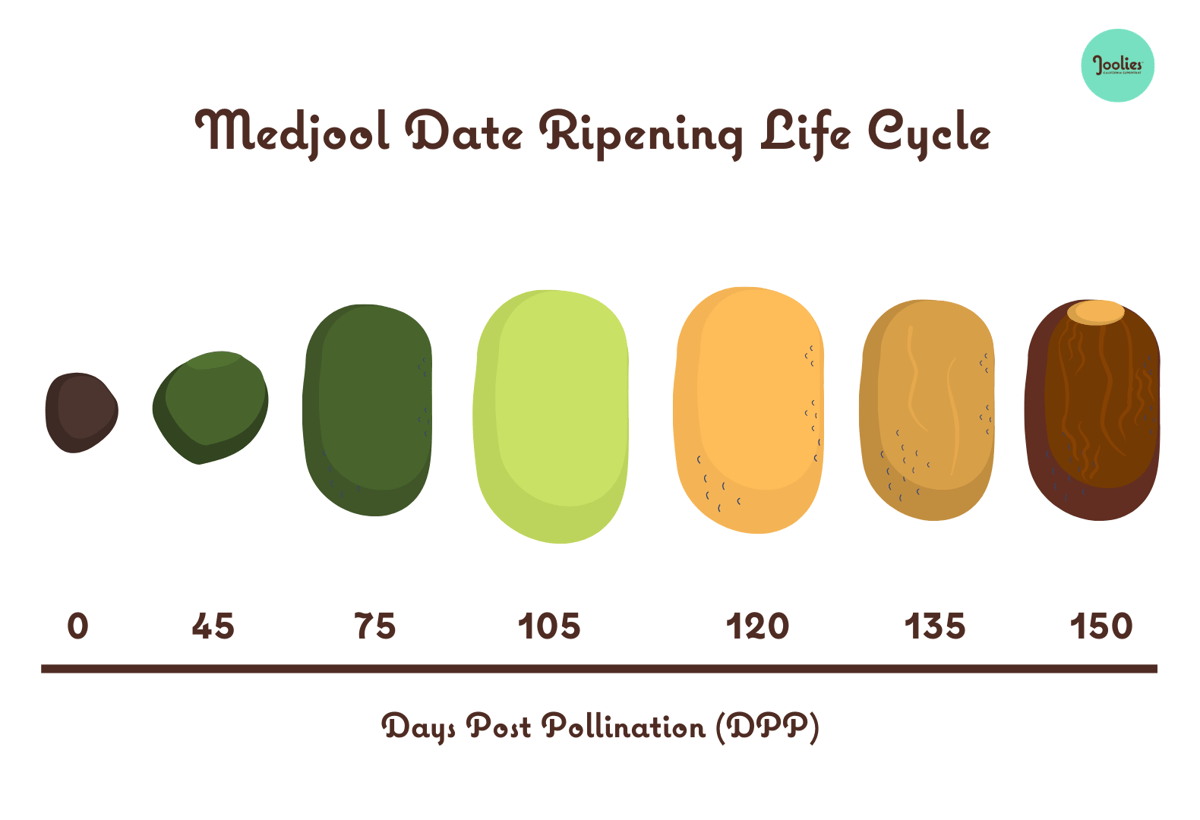Medjool dates THRIVE in the golden California sunshine and arid heat. In fact, they need these conditions as part of their ripening lifecycle to become the sweet dates and juicy palm tree candy we know and love. We wanted to visit the Joolies farm at the mid-stage of this cycle, to get a better sense of how the fruit mature -- so we made a trip in July!
It’s about 116* degrees in the Coachella Valley. Driving in from Los Angeles, you definitely feel things heating up the further you get out to the desert. As the thermometer increases, so does the glaring sun on your arms and hands as you finesse the steering wheel. There is no escaping the sun. The tint of your car starts to change and bubble up slightly because it’s not used to baking in the sun - boy, you know it’s hot out there.
We drove off the highway and instantly started to notice the plethora of palm trees in the valley. Purple Mountains majesty in the distance. We made it!
.png?width=889&name=Screen%20Shot%202020-08-06%20at%204.50.14%20PM%20(1).png)
%20(1).png?width=889&name=image%20(3)%20(1).png)
We pulled into Joolies Date farm in shorts and tank tops, ready to beat the heat. But when Haiser and Tim greeted us at the door, we realized that was NOT the move. Our farm duo and everyone in the office were in long pants and sleeves covering their shoulders to protect them from the sun. Normally if spending longer durations in the sun, they’d be in long sleeves for the same reason.
Masked up, sun-screen on - it was time to hit the fields.
The Experience
Joolies Date farm grows 500 acres of organic medjool dates- that’s nearly 25,000 date palm trees - yes, dates grow on palm trees! One mature tree can produce 150-200 pounds of fruit annually. Dates are harvested once per year but it is the work done year-round that impacts the success of the harvest -- and, of course, the weather conditions Mother Nature provides. We might have been hot - but we were forever thankful for the sun above to ripen our beautiful dates. It’s been a great growing season thus far!
As we left the main office we drove past some buildings that house the pollination process. Months ago in late February/March, the pollen was harvested from the male trees so that the entire 500 acres could be pollinated efficiently and effectively. There are only about 1 male tree for every 50 female trees, so in order for all trees to be sustainably covered, our farmers step in to help with coverage.
Later in April in May, small, berry-like, green dates begin to appear on the stems of the females and they begin the process of thinning out the top and bottom of the stems to allow the rest of the dates to expand and grow larger. It also means more water and nutrients for those that made it past the thinning process.
First Date
In under 5 minutes we hit the first block of palm trees. Driving through the palm groves, it feels like utopia to see the sunshine glimmering through the green palm fronds and blue skies above. This area houses the younger trees, standing with their trunks no more than 10 feet high and their date bunches hanging in arms reach for us 5’something heights to get our hands on.
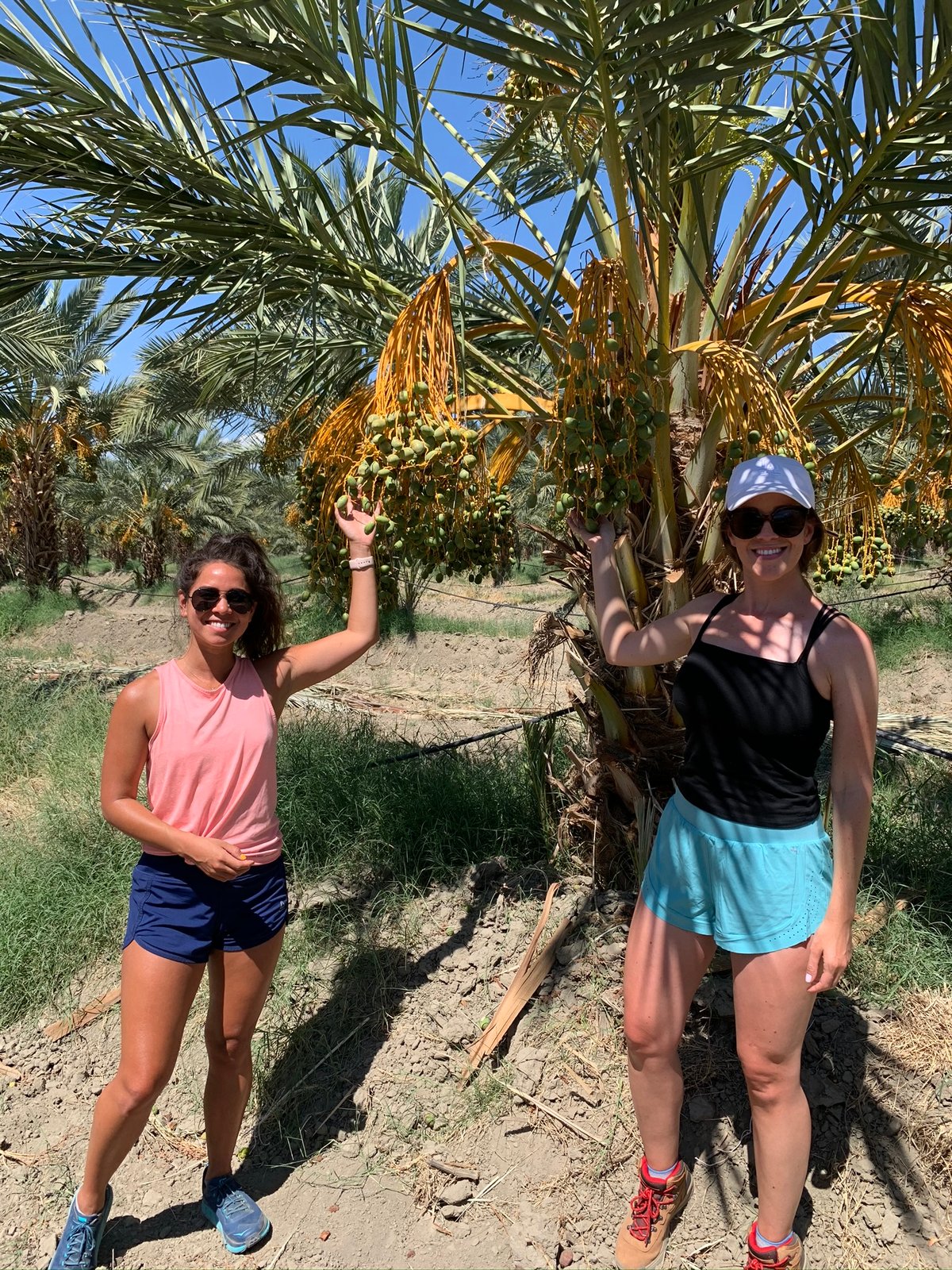
The dates are GREEN and relatively very large compared to the dates we consume! Very surprisingly, the dates are also very hard and currently feel like an acorn when you “knock” on one. On top of that, the bunches are pretty heavy, with one weighing about 30-40lbs. It took some full body lifts for our already heat-fatigued selves to lift.
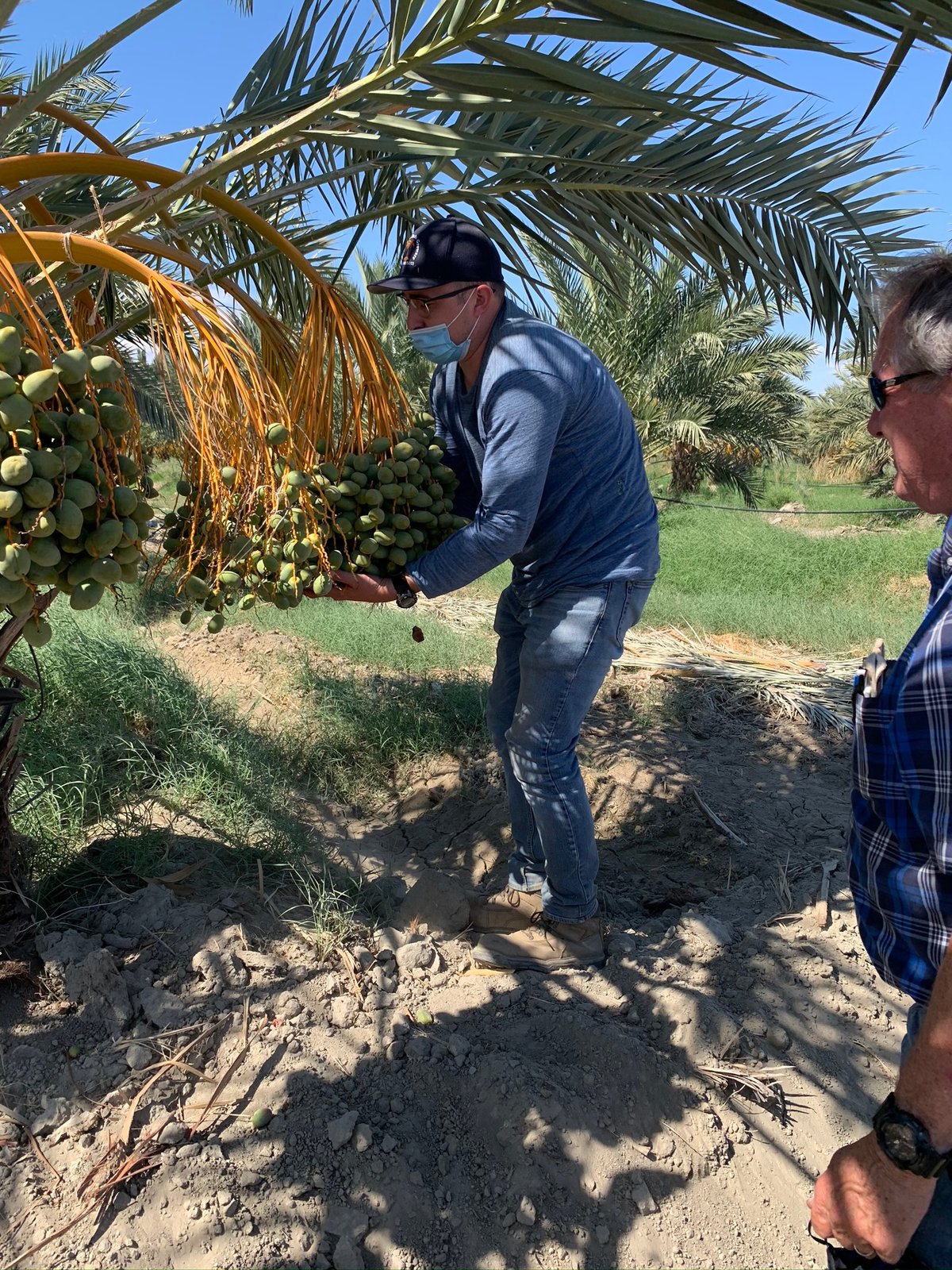
Drip Irrigation
The deeper into the groves, the taller the trees got. We also noticed all of the trees were lined with drip irrigation lines - which are exactly how they sound! They are water tubes that are carefully wrapped around the trees so that the perfect amount of water is thoughtfully dripped out to feed the tree the most sustainable way possible. This method also reduces the risk of mold and bad bacteria if water stagnates around the tree for too long. Not too far away was the reservoir where pure water from the Colorado River chills until ready to be drank up by Joolies trees. Fun fact: since they are a desert fruit, date cultivation requires less amounts of water to flourish than other fruits like citrus or grapes!
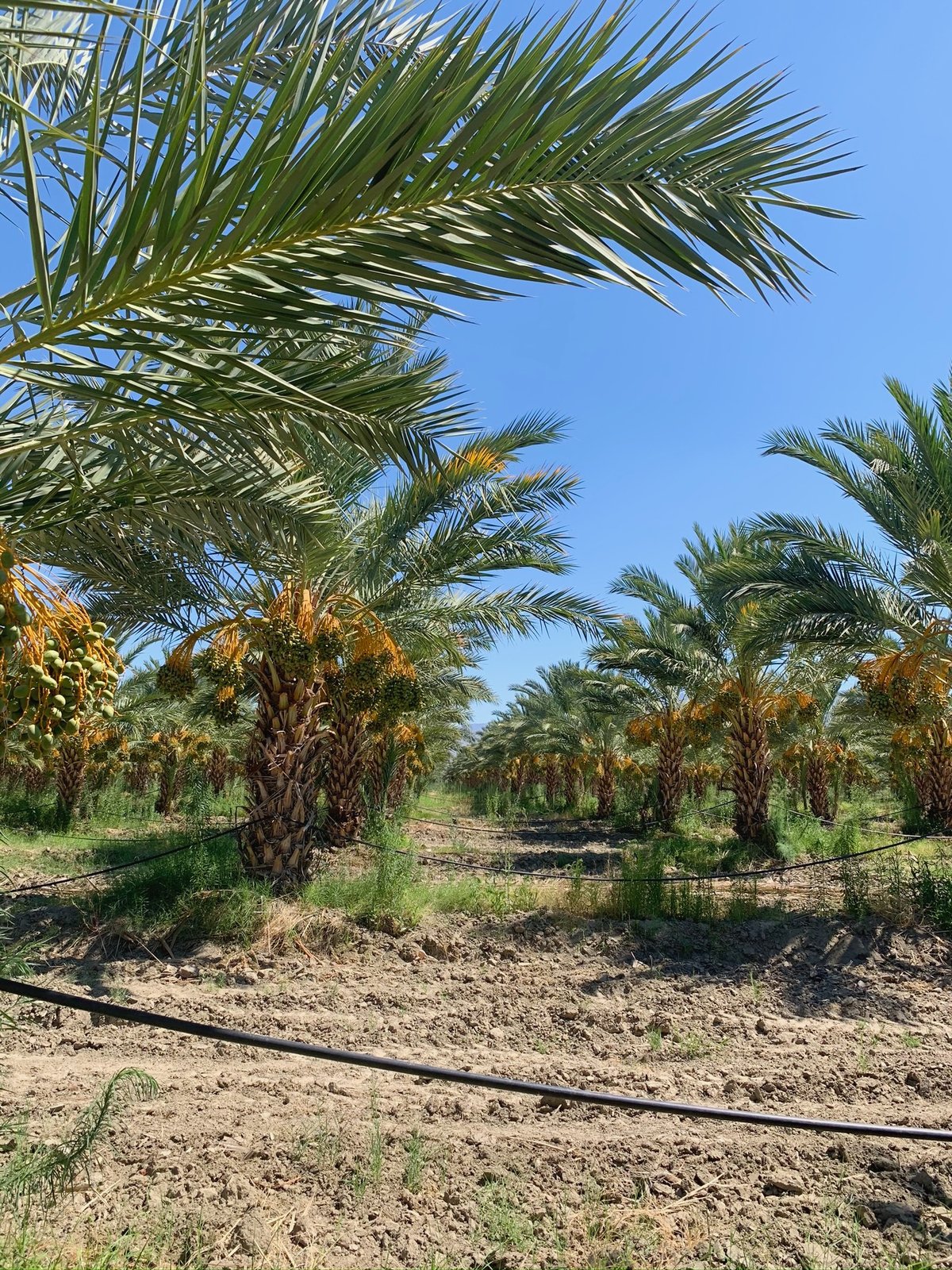 |
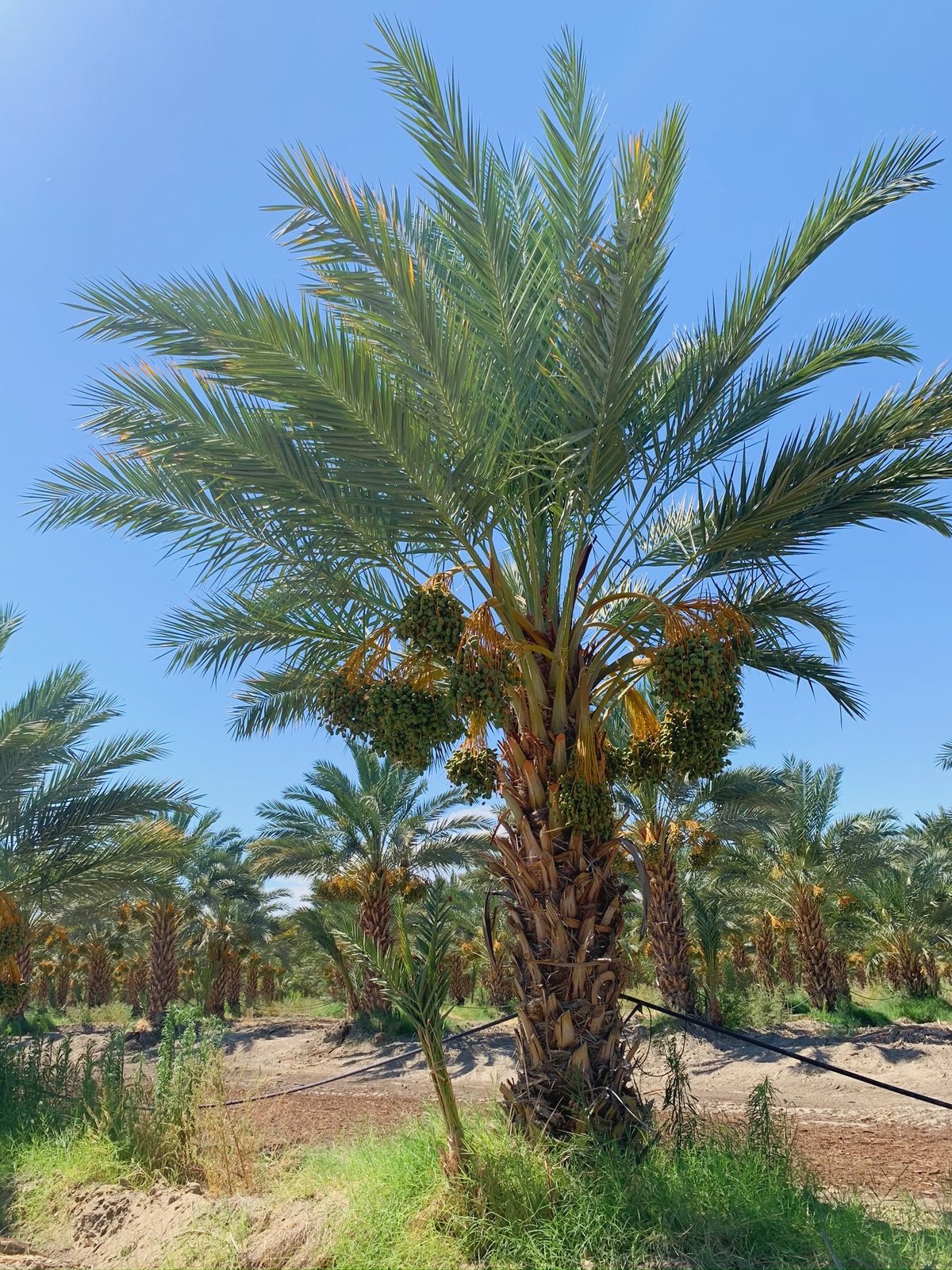 |
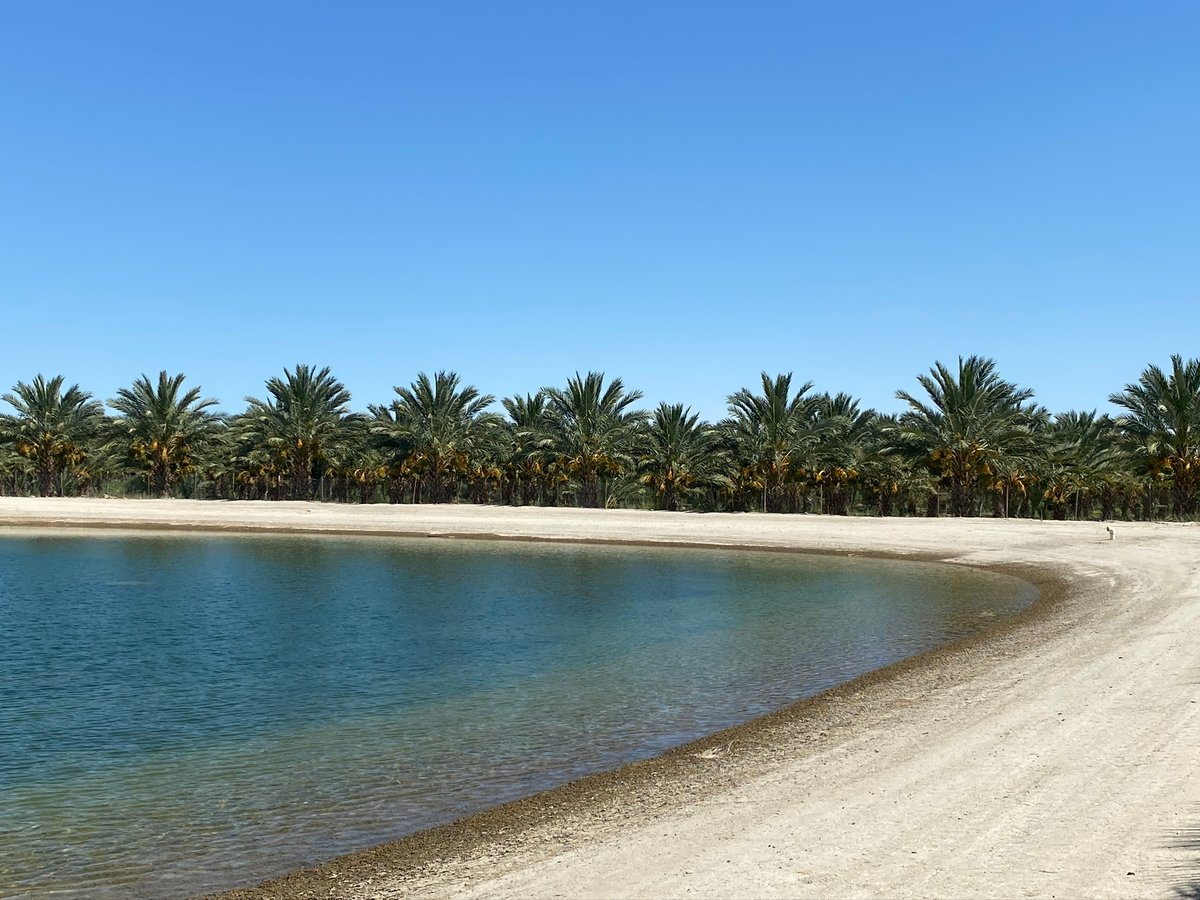
Regenerative Ag, you say?
If you look closely, you can see baby palm shoots sprouting from the bases of the trees. That’s how we generate more trees to build our farm! We take baby shoots and propagate them onto healthy trees so they can develop until the time is right for them to be planted into the ground on their own. You might do this at home with your house plants - it is the same concept! Another way to put this, and a concept that’s gaining positive momentum, is Regenerative Agriculture - something we’re doing during our farming process and cultivation of fruit that helps battle climate change - by planting more trees with every harvest!
Reproduction Out Of Extinction
This is because all medjool palm trees have to be planted from previous off-shoots. Actually, all medjool trees in the states, if not the world, come from only ELEVEN off-shoots that came from Morocco to Nevada and California in 1927. Medjools were actually on the brink of extinction due to some disease that eradicated most of the medjool groves in Morocco. Later we (USA) brought some medjool trees back to the Middle East to start the planting process again, saving them from a grim extinction.
Pest Control
As we drove through the trees, we also started to notice some of the date bunches were bagged up in mesh bags. These mesh bags protect the dates from hungry creatures around the farm. Since Joolies farm does not use any harmful pesticides, herbicides, or fungicides, we use these sustainable and reusable mesh bags to protect our luscious medjools as they start to ripen and get sweeter.
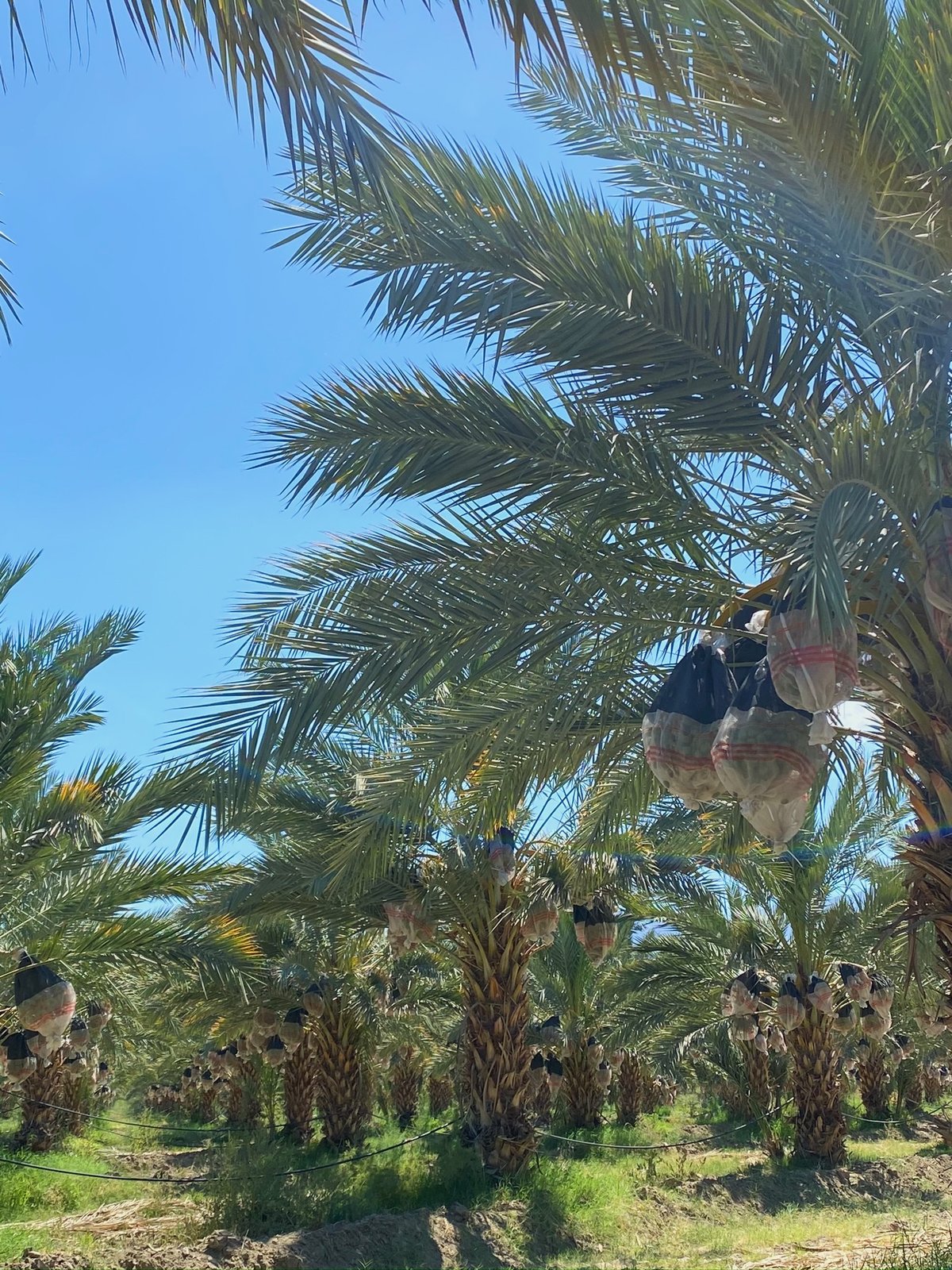 |
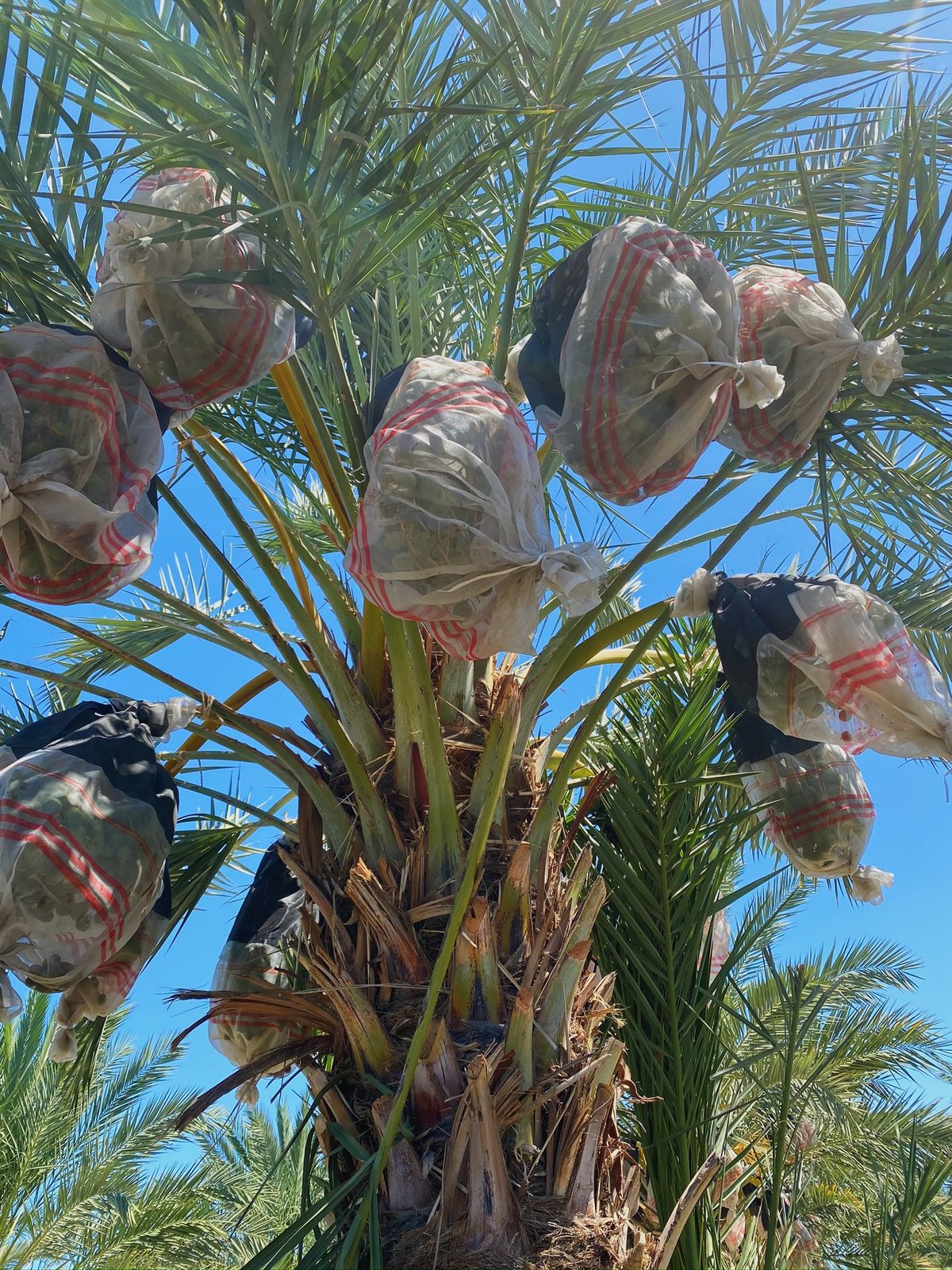 |
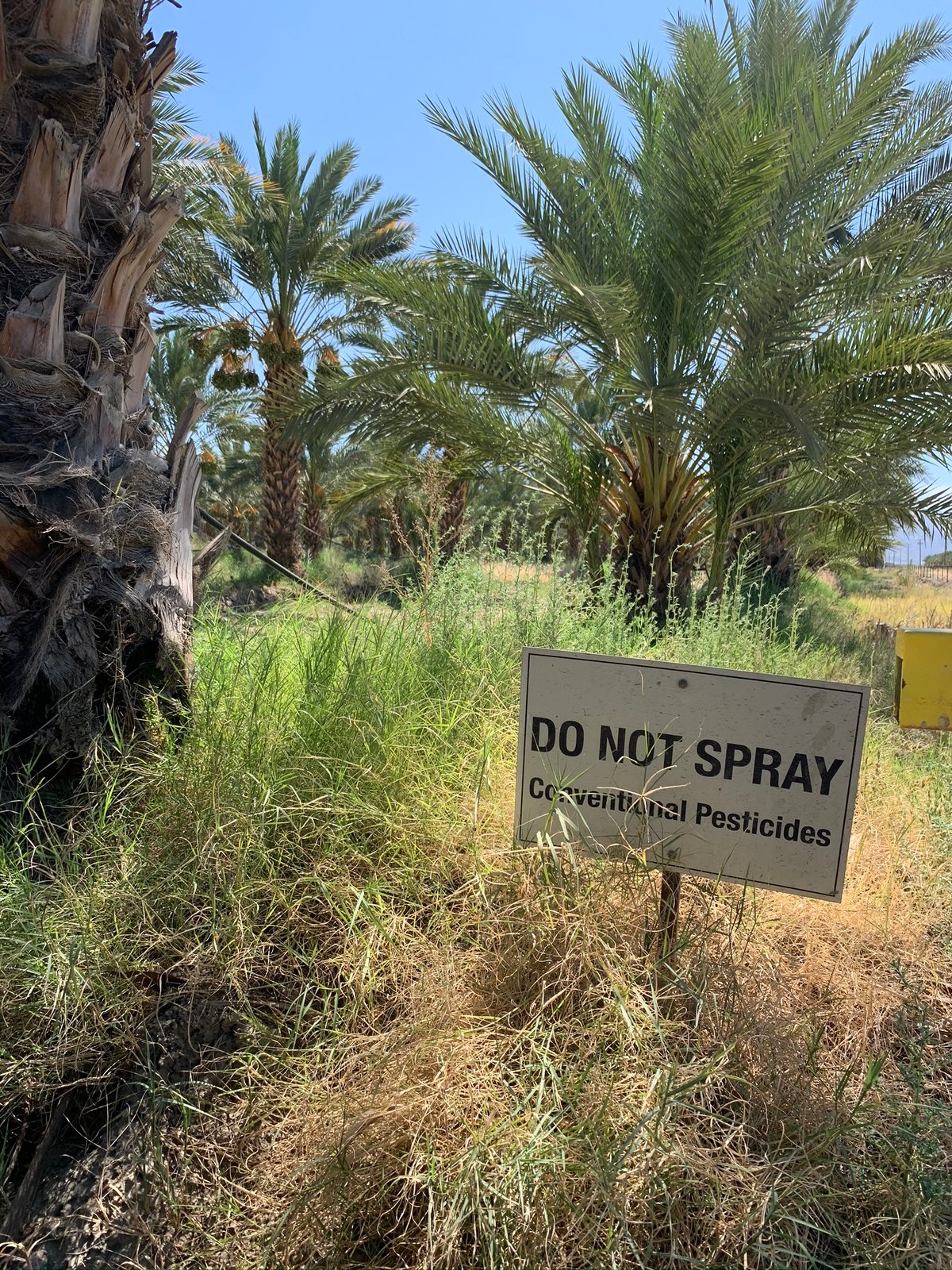
The sign states “DO NOT SPRAY” with conventional pesticides. A friendly reminder we do not use any harmful chemicals on our farm. We actually appreciate a little overgrowth and biodiversity in the spirit of protecting the quality and safety of our fruit, and, not to mention the planet. To take a step further in our commitment in organic and protecting the planet, our farm was the first to be Certified Glyphosate Residue Free by the Detox Project. We have our soil and harvest tested to ensure we were free-from toxic chemicals.
Speaking of biodiversity, we encourage feathered friends to live on our farm by installing bird boxes throughout the palm groves. Hawks and Owls call these home which are Owls are nature’s original form of pesticide. These hunters protect our palm trees from critters on the ground and are playfully considered Joolies’ Chief Pest Control Officers.
-1.jpg?width=1200&name=Image%20from%20iOS%20(12)-1.jpg)
Standing Tall at the Intersection of The Royals
The peak of the tour was visiting the mature and most majestic blocks of the farm. These monster palm trees stood above us like wise old soldiers ready to withstand the test of time-- just like dates have. Their trunks were massive with green date-bunches aplenty and very out of reach. 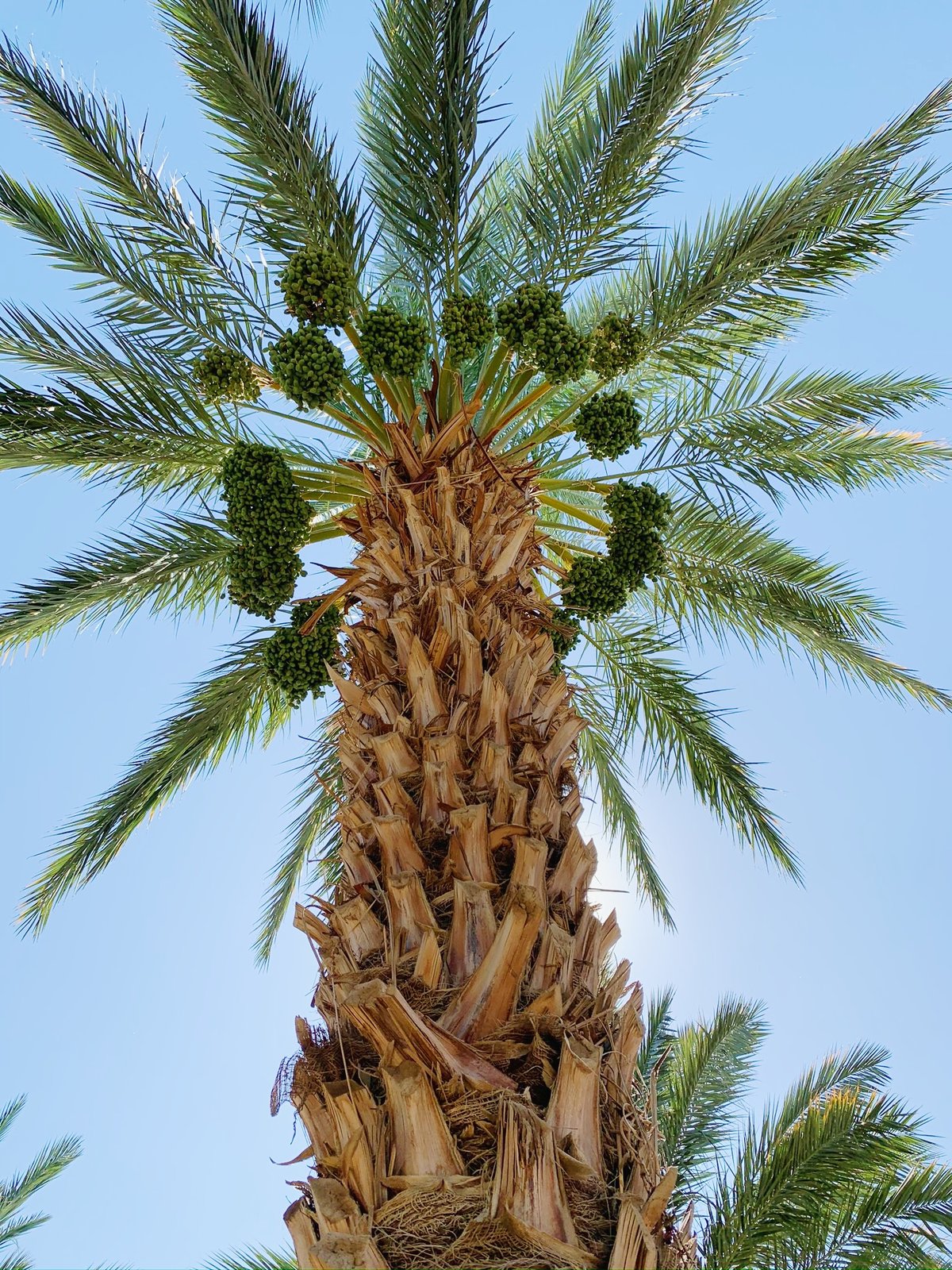
This was also the intersection of medjool vs deglet date groves. Yes! Joolies date farm grows deglet noor dates, a smaller and nuttier type of date, actually known as the Queen of Dates. They also grow a small amount of Zahiti dates. Did you know there are about 3,000 types of dates in the world? While Joolies does not sell these dates in our family of products, we are happy to share the land and grow for others.
Deglet dates protrude down from the trunk and hang from a lemon-yellow frond. The fronds can actually be chopped at their root and dates be picked and sorted later on in the process since they have a more hearty structure to them. Conversely, medjool date bunches stay close to their trunk and need to be hand-harvested, one by one, because they are more delicate and luscious than deglets. Medjool dates are known as the King of Dates due to their size, relative to other dates, and were enjoyed by ancient royalty. Medjool date benefits include high amounts of antioxidants, magnesium and more potassium than a banana by weight! Dates are low on the glycemic index so these sweet dates, so no wonder these nutritious fruit have been enjoyed for millennia around the world!
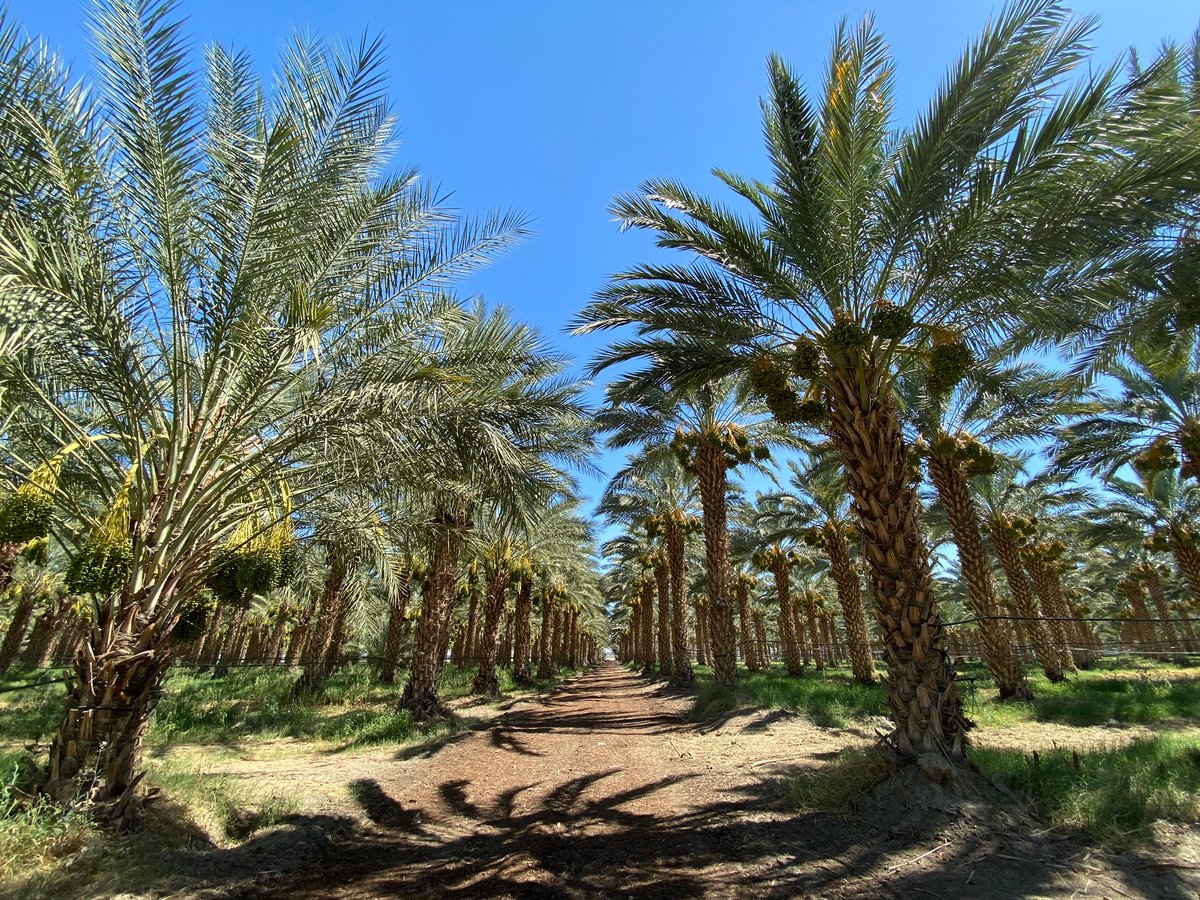
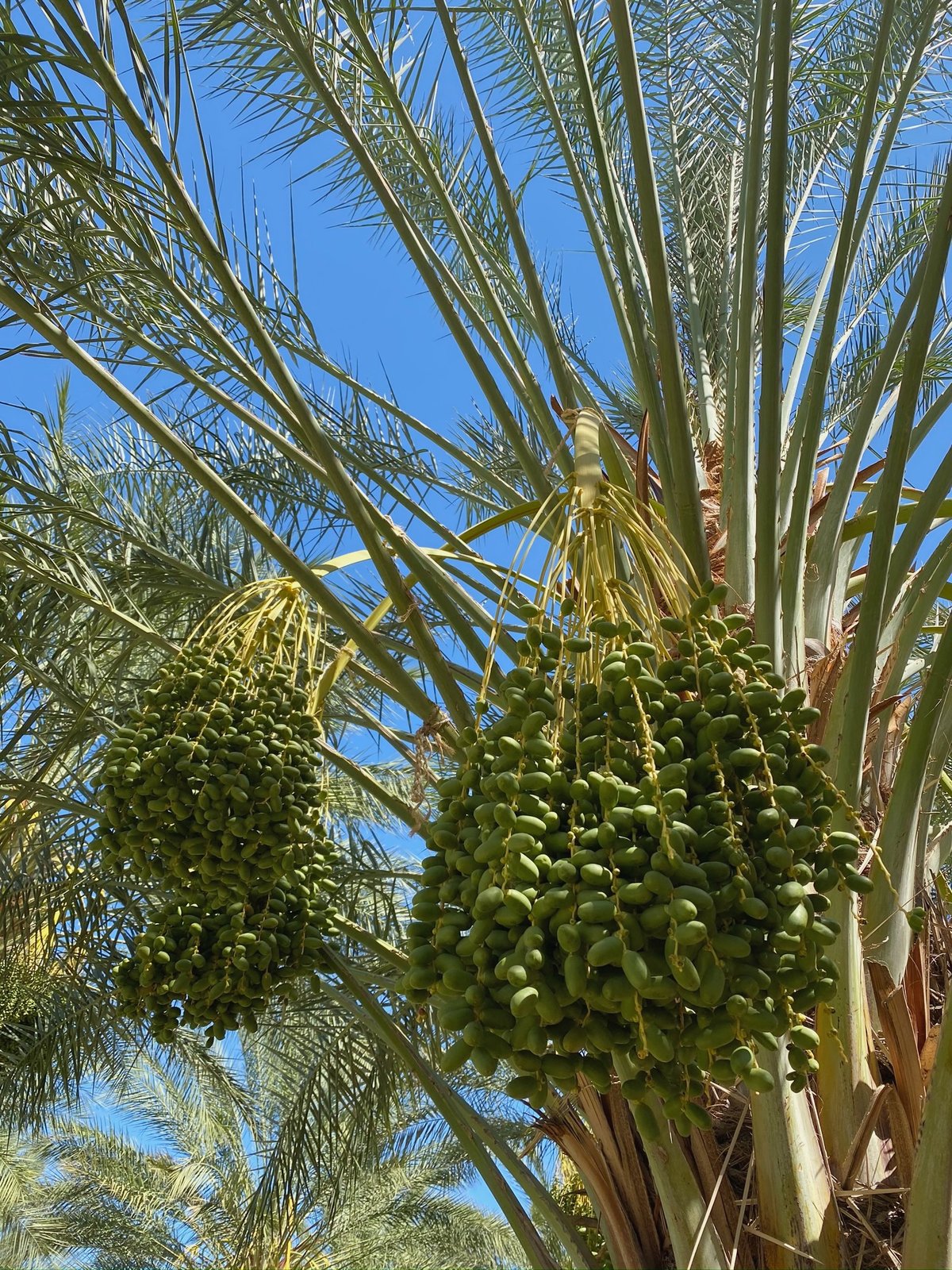
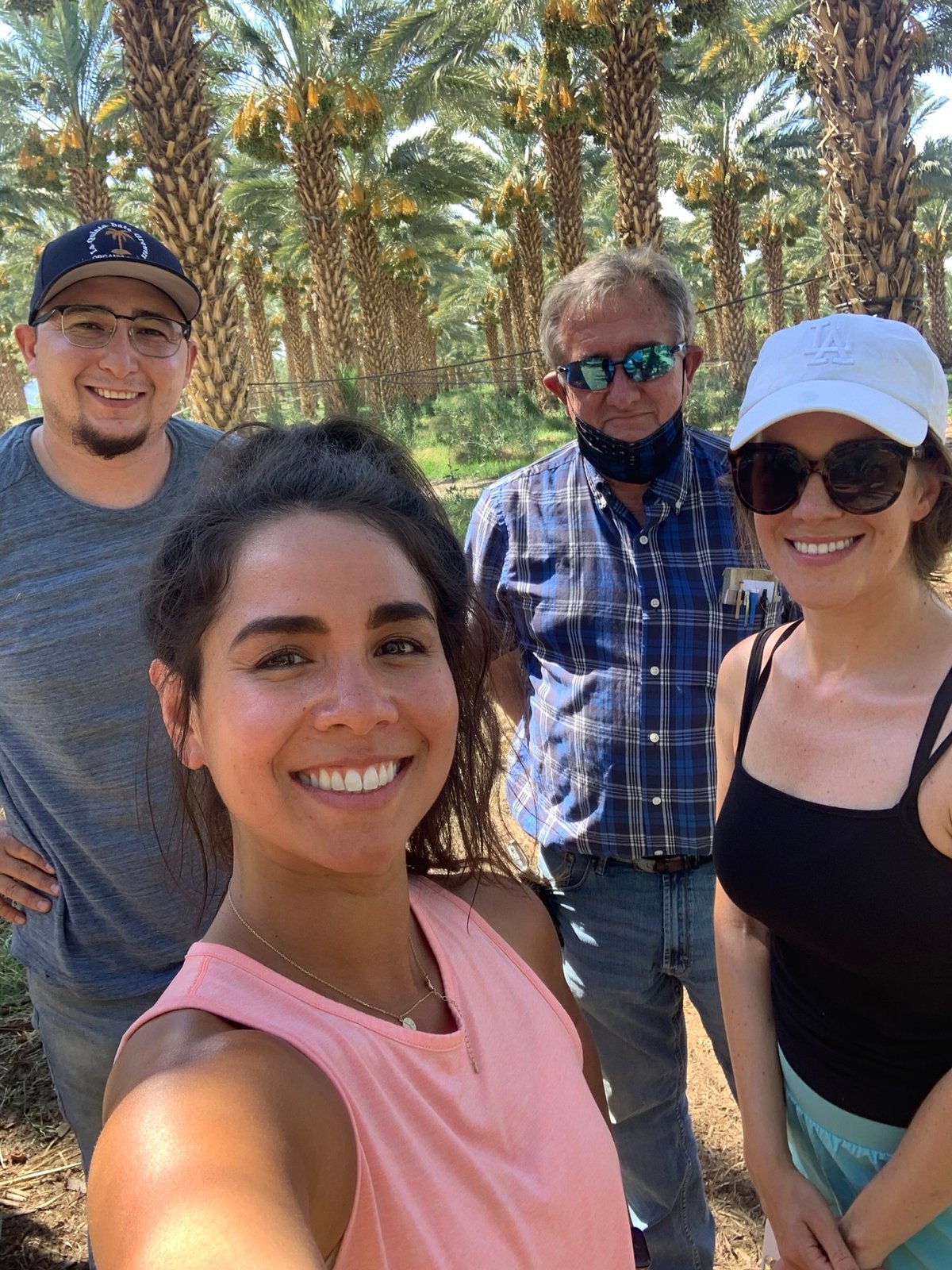
At this point of the tour, our phones were overheating (they actually died minutes after taking this photo) and we had driven through a good amount of blocks to get an idea of the date life-cycle. From baby sprouts to the magnificent date veterans, the Joolies farm visit experience will really take your breath away and is helpful to understand where our food comes from.
We can see (and feel) how the arid and hot conditions ripen the fruit to turn them into the brown beauties we consume. From green dates to soft and wrinkly skin, the dates ripening life-cycle really begins from our visit forward. The sun will continue to do its job shining down day by day. In about 6-8 weeks these green ovals will transition from green to yellow until they are fully brown. Then; it’s go-time, baby!
We’ll check back in when Harvest arrives!
In the meantime, check out our tasty medjool date recipes!
